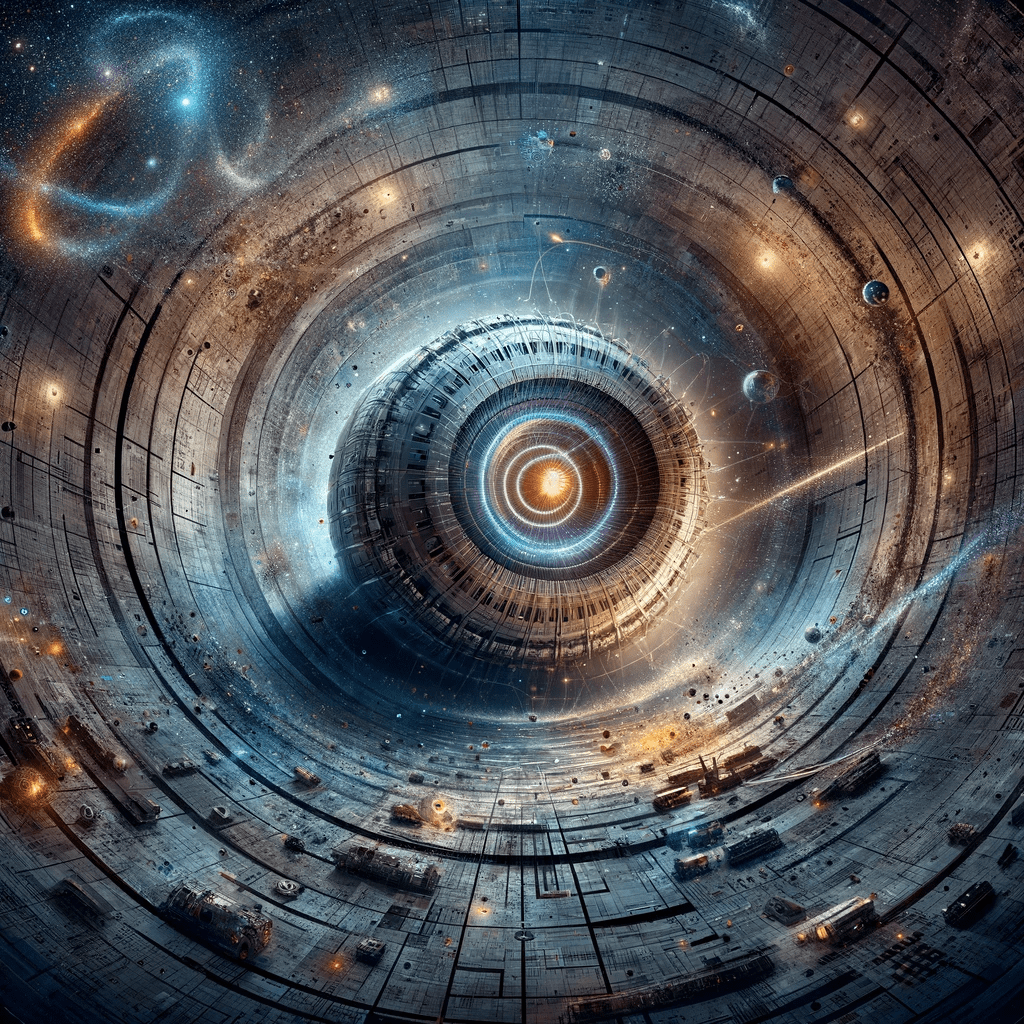The Large Hadron Collider (LHC)

The Large Hadron Collider (LHC) is a remarkable scientific instrument, situated at the European Organization for Nuclear Research (CERN) near Geneva, Switzerland. Operational since 2008, the LHC is the world’s largest and most powerful particle accelerator, designed to enable researchers to explore the fundamental building blocks of the universe. The LHC has been a hub of groundbreaking research and discoveries, including the Higgs boson, also known as the “God particle.” Its significance extends to various fields of science, such as particle physics, cosmology, and even engineering.
The LHC is a 27-kilometer (16.7-mile) long underground ring that accelerates particles, such as protons, to almost the speed of light before smashing them together. These high-energy collisions generate new particles and allow scientists to study the properties of matter and the forces that govern their interactions. The LHC was constructed in collaboration with more than 10,000 scientists and engineers from over 100 countries, representing a monumental achievement in international cooperation and scientific advancement.
One of the most significant discoveries made at the LHC is the Higgs boson, a particle first theorized by physicist Peter Higgs in 1964. In 2012, CERN announced the detection of the Higgs boson, a result that later earned Higgs and physicist François Englert the 2013 Nobel Prize in Physics (Source: Nobel Prize). The Higgs boson is an essential component of the Standard Model of particle physics, providing a mechanism for other particles to acquire mass.
The LHC continues to advance our understanding of the universe. For example, researchers at CERN have made progress in understanding the asymmetry between matter and antimatter (Source: CERN). This finding could shed light on why the universe we observe is primarily composed of matter rather than equal amounts of matter and antimatter. Additionally, the LHC has contributed to the study of dark matter and dark energy, mysterious phenomena that make up a large portion of the universe but remain poorly understood.
The Large Hadron Collider (LHC) is indirectly helping scientists in their quest to understand gravity. Although the LHC mainly focuses on particle physics, some of the discoveries and insights gained from its experiments have implications for understanding gravity, one of the four fundamental forces of nature.
The LHC primarily deals with the other three forces: electromagnetism, the strong nuclear force, and the weak nuclear force, which are collectively described by the Standard Model of particle physics. Gravity, however, is not included in the Standard Model. Instead, it is described by Albert Einstein’s theory of general relativity, which is a classical theory incompatible with the quantum nature of the other three forces. A major goal in theoretical physics is to develop a quantum theory of gravity, which would unify all four forces into a single, coherent framework.
While the LHC does not directly probe gravity, it contributes to our understanding of gravity in several ways:
- Higgs boson: The discovery of the Higgs boson at the LHC confirmed the existence of the Higgs field, which gives particles mass. Mass is an essential aspect of gravity, as it determines how objects interact with the gravitational field. By better understanding the origin of mass, scientists can refine their understanding of gravity and its behavior.
- Dark matter and dark energy: The LHC’s experiments have implications for the study of dark matter and dark energy, two mysterious components that make up a significant portion of the universe. Although they do not directly relate to gravity, dark matter and dark energy influence the large-scale structure of the universe and the behavior of galaxies, both of which are driven by gravitational interactions. By gaining insights into these phenomena, researchers can further their understanding of gravity’s role in shaping the cosmos.
- Extra dimensions: Some theories, such as string theory and M-theory, postulate the existence of extra dimensions beyond the familiar three dimensions of space and one dimension of time. These theories often predict that gravity is much stronger in these extra dimensions, which could help explain why it appears so much weaker than the other fundamental forces. The LHC searches for signatures of extra dimensions, such as the production of microscopic black holes or the presence of massive particles called Kaluza-Klein particles. Although no conclusive evidence of extra dimensions has been found yet, these searches help to test and refine theories that could ultimately lead to a better understanding of gravity.
Experts in the field of particle physics, such as theoretical physicist and cosmologist Stephen Hawking, have praised the LHC’s contributions to science. Hawking once stated, “The discovery of the Higgs boson at CERN is the most impressive result in the history of fundamental physics” (Source: Daily Mail). The LHC has not only made an impact in academia but has also captured the imagination of the public, inspiring books like “The God Particle” by Nobel Prize-winning physicist Leon M. Lederman and science writer Dick Teresi.
The Large Hadron Collider is a revolutionary scientific instrument that has significantly expanded our knowledge of the universe’s fundamental particles and forces. The LHC has enabled researchers to make groundbreaking discoveries, such as the Higgs boson, and explore complex phenomena like dark matter, dark energy, and the asymmetry between matter and antimatter.


